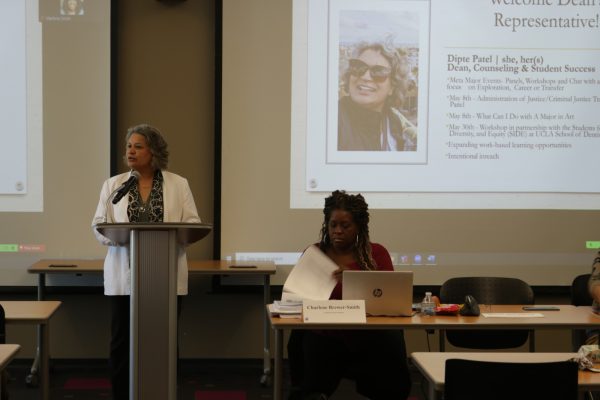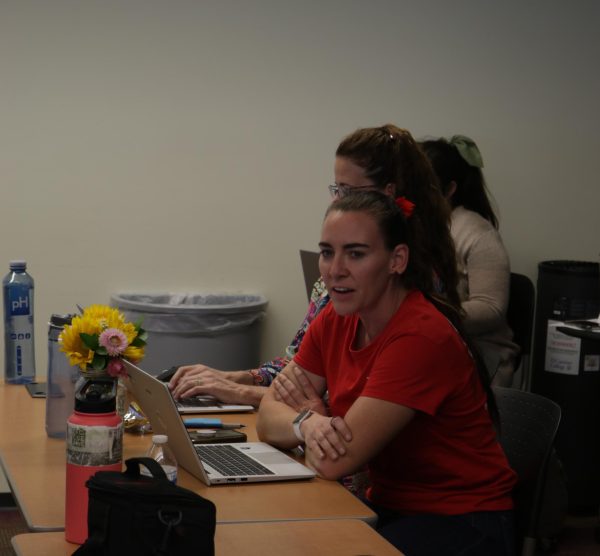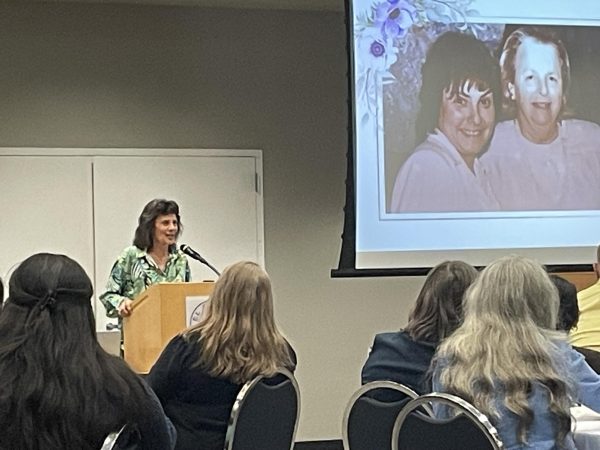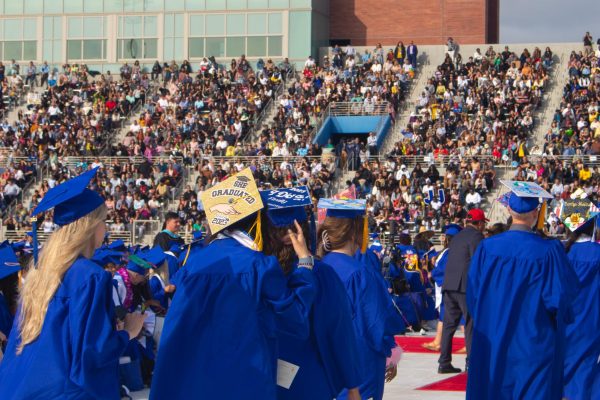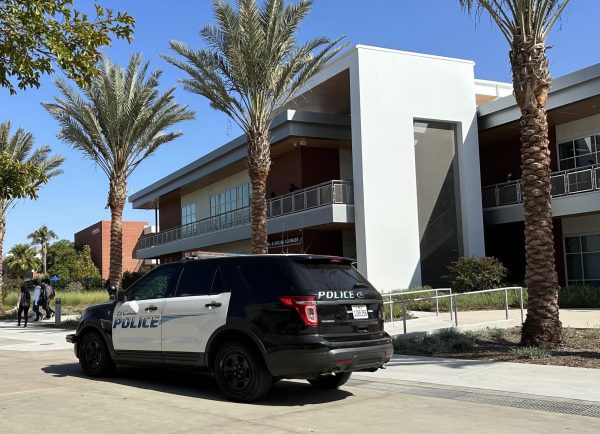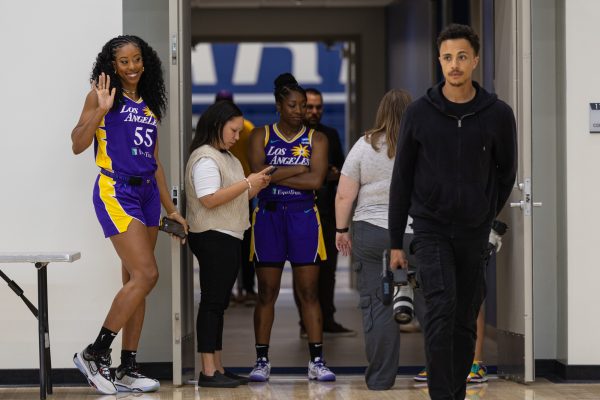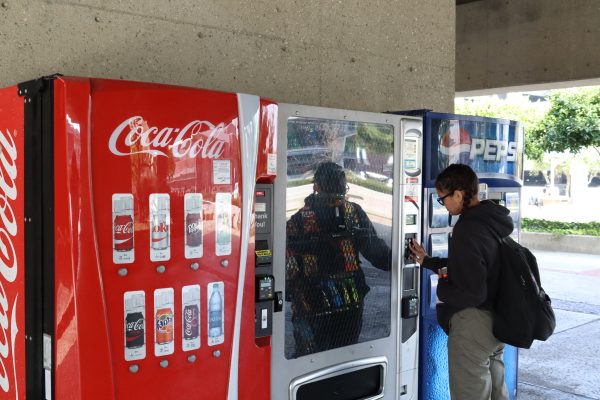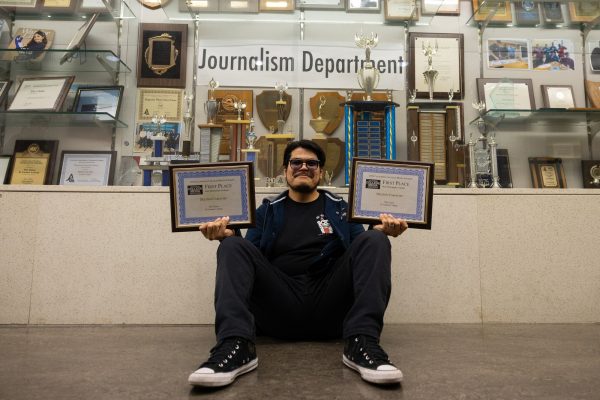Students lend hands
With an oversized yellow jumpsuit, a painted face and a red nose to match the color of his hair, a clown makes a cancer patient’s face transform from grim to a smile. The gloomy hospital room at the Torrance Memorial Medical Center is now lit with laughter, thanks to this clown who gets no money in return. Instead, he volunteers at his own will.
Students can be an important part of their communities by contributing their spare time in the various volunteer programs that are offered throughout the South Bay.
The Torrance-South Bay YMCA for example, offers a wide variety of organized activities that are undertaken by more than 1,600 volunteers who are supported by career professionals and office staff.
“In each of our departments, the volunteers help us with many tasks, from filing to helping the swimming instructors, residential camps, child care and counseling,” Martha Flor, YMCA membership director, said.
Volunteering in these programs helps keep children off the streets and also strengthens the youth’s appreciation and responsibility to the environment, Flor said.
“We strengthen our relationship with the community. As more people become a part of the YMCA, they form a larger community and begin to feel that they belong to a place,” Flor said.
Another place students may volunteer is at the Little Company of Mary Hospital in Torrance, which is a mission-driven organization comprised of various volunteer programs, including the Auxiliary of Little Company of Mary Hospital in Torrance.
The auxiliary focuses on fund raising and getting to know the patients on a personal level and helps in all ancillary and business office areas, including the off-site areas that are part of the hospital, Jill Schultz, director of volunteer services, said.
“We ask the volunteers about their schedules and interests, then the volunteers have to attend a four-hour orientation that involves confidentiality, initializing our core values and hospital safety procedures,” Schultz said.
Little Company of Mary likes to be organized and therefore has the volunteers help on set schedules. They help the staff as much as they can, Schultz said.
“It really helps the staff to take better care of the patients,” Schultz said. “They don’t have to spend their time discharging a patient or running to the lab or going to pick up charts; the volunteers take care of all that.”
The volunteers cannot do any patient care unless they have been trained. However, volunteers can take part in the volunteer/patient relation program, where the volunteers stay in the patients’ rooms and assist them with anything that is not clinical, Schultz said.
“There is a need for people in the oncology floor to talk to patients and keep them company,” Schultz said.
The Torrance Memorial Medical Center is a nonprofit organization and also offers many volunteering opportunities within.
“From the eighty different departments in the hospital, our main service areas are the information desks, which are fully staffed with volunteers,” Ronneale Branning, director of volunteer services, said.
Torrance Memorial offers specialty programs such as the piano program, in which volunteers play the piano for two to three hours per shift every day of the week, a clowning program, which helps bring smiles to patients’ faces, and a pet visitation program, in which the pets keep the patients company.
“Yes that’s right; we have dog volunteers,” Branning said.
The escort service provides services to any department that needs assistance. Escort volunteers help in things like discharging patients and delivering flowers, Branning said.
However, “our volunteers have a hands-off policy,” and therefore may not provide clinical care to the patients, Branning said.
Torrance Memorial has more than 1,000 volunteers, Branning said.
Students and clubs at EC are also devoting their time volunteering in the community.
Wala Budri, treasurer of the Circle K Club, volunteers on and off campus.
“I belong to the Sudanese Organization,” Budri said. “We help people who come from Sudan and we help their children with their homework, since their parents don’t really know how to speak English.”
Zia Suzuki, member of the Circle K, said she once volunteered at elementary schools and is fond of the memory.
“It was very fulfilling; it was great,” Suzuki said.
Though volunteering does not benefit the volunteers financially, it benefits them in countless other ways, Branning said.
“When people volunteer, they help build strong kids, strong families and strong communities,” Flor said.
“I’m not only going to school and working, but I’m actually making a difference,” Budri said.


